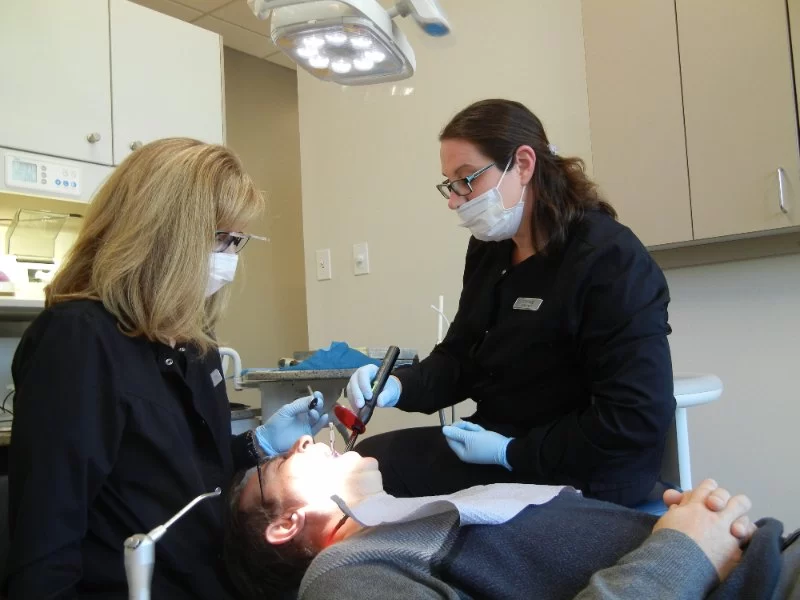
How to Talk to Someone About Their Poor Oral Hygiene
Talking to someone about their poor oral hygiene can be a delicate matter. Whether it’s a close friend, a family member, or even a colleague, addressing someone’s hygiene habits, especially when it comes to something as personal as their teeth, can be awkward. However, poor oral hygiene can have serious consequences not only for the individual's health but also for their overall well-being. In this article, we’ll explore effective ways to approach the topic with tact, compassion, and understanding while offering practical advice for encouraging better oral care.
1. Why Oral Hygiene Is Important
Oral hygiene is not just about having a bright, white smile—it’s essential for maintaining good overall health. Poor oral hygiene can lead to a range of health issues, including gum disease, cavities, bad breath, and even more serious conditions like heart disease and diabetes. Plaque buildup and poor brushing habits can cause bacteria to accumulate in the mouth, leading to infections and complications that may extend far beyond the mouth.
1.1 The Health Risks of Poor Oral Hygiene
When someone neglects their oral hygiene, they increase the risk of developing gingivitis, which can progress to more severe forms of gum disease like periodontitis. This can result in tooth loss, bone damage, and even infections that spread to other parts of the body. Additionally, bad oral hygiene contributes to halitosis (chronic bad breath), which can affect personal and professional relationships.
1.2 The Emotional Impact
Good oral health is also linked to emotional well-being. People who are self-conscious about their breath or the appearance of their teeth may feel less confident, avoid social interactions, and struggle with their self-esteem. Addressing oral hygiene concerns early on can help prevent these emotional impacts and ensure they maintain confidence in both their appearance and health.
2. How to Approach the Conversation
Approaching someone about their poor oral hygiene requires sensitivity and care. Here’s how to handle the conversation thoughtfully:
2.1 Choose the Right Moment
Timing is crucial. Avoid bringing up oral hygiene during a stressful or busy time. Instead, wait for a relaxed moment when you’re both in a private space, ensuring that your conversation can happen without interruptions or distractions. Make sure they’re in a positive, receptive mood so they’re more likely to listen and engage in a constructive dialogue.
2.2 Be Gentle and Empathetic
When you do bring up the topic, approach it with empathy and kindness. Let them know that you care about their health and well-being. A gentle approach helps prevent defensiveness and fosters an open conversation. Use “I” statements to express your feelings and concerns without sounding accusatory, such as, “I’ve noticed that your breath has been a little strong lately, and I’m concerned it might be due to some oral hygiene issues.”
2.3 Focus on the Health Aspect
Frame the conversation in terms of health rather than appearance. Emphasize the long-term benefits of maintaining good oral hygiene, such as preventing painful dental procedures and reducing the risk of gum disease or other health problems. Avoid focusing on their smile or breath as this can make the person feel self-conscious.
2.4 Offer Help, Not Judgment
Instead of criticizing, offer to help. You could suggest going to the dentist together or looking into oral hygiene tips and products that could improve their routine. You might also recommend scheduling a dental check-up to ensure they’re on track with their oral health. Offering to support them in making changes will create a more positive atmosphere around the conversation.
3. Making Suggestions for Improvement
When discussing ways to improve oral hygiene, make your suggestions clear, practical, and non-judgmental. Here are some helpful tips to share:
3.1 Brush Twice a Day
Encourage brushing twice a day, especially before bed to remove plaque buildup and food particles. Remind them that brushing is crucial to prevent cavities and gum disease. A toothbrush with soft bristles and fluoride toothpaste can make the process more effective. You might even recommend an electric toothbrush for more thorough cleaning.
3.2 Floss Regularly
Flossing is a key part of oral hygiene that many people skip. Flossing helps remove food and plaque between the teeth and along the gum line, areas that a toothbrush can miss. Gently suggest incorporating flossing into their routine, emphasizing that it only takes a few minutes and can make a big difference in oral health.
3.3 Use Mouthwash
Recommend using a mouthwash with fluoride or one that targets gum health and bad breath. Mouthwash can be an effective way to reduce bacteria in the mouth, freshen breath, and help with overall oral hygiene. There are also mouthwashes that are specifically designed for people with sensitive teeth or gums.
3.4 Stay Hydrated
Drinking plenty of water throughout the day helps rinse food particles and bacteria away from the teeth and gums. It also promotes saliva production, which is essential for neutralizing acids in the mouth and protecting the enamel. Encourage them to swap sugary drinks for water to improve both their hydration and oral health.
4. Real-Life Examples
Here are a couple of real-life stories that highlight the positive impact of addressing poor oral hygiene:
4.1 Sarah’s Journey to Better Oral Hygiene
Sarah had always been a bit embarrassed about her bad breath, but she didn’t know that it was caused by poor oral hygiene. When a friend finally approached her about it, she felt relieved that someone cared enough to bring it up. After visiting the dentist, Sarah learned that she needed to floss regularly and that her breath could be improved with a better brushing technique. Over the next few weeks, she noticed a significant difference in both her breath and her confidence.
4.2 Tim’s Transformation with Regular Checkups
Tim had a history of neglecting his oral health, but it wasn’t until he experienced tooth pain that he realized how serious the situation had become. A family member suggested he visit a dentist, and after a deep cleaning and regular follow-ups, Tim’s dental health greatly improved. His gum disease was addressed early, and he learned to incorporate better brushing and flossing habits into his daily routine. Tim’s story shows how addressing poor oral hygiene early on can lead to positive outcomes.
5. Where to Get Help for Oral Hygiene
If you or someone you know needs help with oral hygiene, it’s important to consult with a professional. Dentists can provide personalized advice, perform cleanings, and help create an oral care plan to ensure long-term health. For more information on improving your oral health, check out Family Dentistry Online, where you can find expert services and resources to support your journey toward better oral hygiene.







 Summit Dental Care4.0 (124 review)
Summit Dental Care4.0 (124 review) Fair Oaks Orthodontics5.0 (29 review)
Fair Oaks Orthodontics5.0 (29 review) Dental Care of North Fort Myers4.0 (708 review)
Dental Care of North Fort Myers4.0 (708 review) Sarkissian Dentistry: Robert Sarkissian, DDS, MAGD5.0 (84 review)
Sarkissian Dentistry: Robert Sarkissian, DDS, MAGD5.0 (84 review) Root 66 Endodontics4.0 (16 review)
Root 66 Endodontics4.0 (16 review) Scott Soderquist, DDS, MS0.0 (0 review)
Scott Soderquist, DDS, MS0.0 (0 review) The Importance of Oral Health Education During Pregnancy for a Healthy Pregnancy
The Importance of Oral Health Education During Pregnancy for a Healthy Pregnancy Best Tips for Brushing Your Teeth Properly for Healthy Gums: Essential Techniques for Oral Health
Best Tips for Brushing Your Teeth Properly for Healthy Gums: Essential Techniques for Oral Health Why Skipping Dental Checkups Can Lead to Bigger Oral Health Problems
Why Skipping Dental Checkups Can Lead to Bigger Oral Health Problems Advantages of Porcelain Dental Restorations
Advantages of Porcelain Dental Restorations How Can Diabetes Cause Tooth and Gum Problems? Preventing and Managing Oral Health Issues
How Can Diabetes Cause Tooth and Gum Problems? Preventing and Managing Oral Health Issues Healthy Habits for Promoting Good Oral Health and Hygiene: Tips for a Healthy Smile
Healthy Habits for Promoting Good Oral Health and Hygiene: Tips for a Healthy Smile